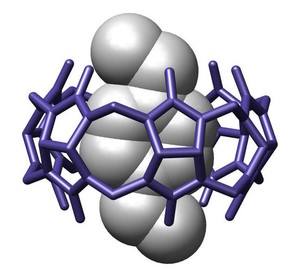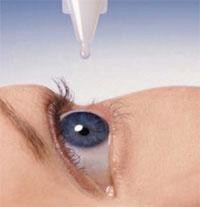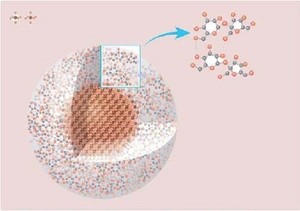Complex drug products and their generic (or follow-on) versions was the subject discussed at the New York Academy of Sciences symposium on Equivalence of Complex Drug Products: Scientific and Regulatory Challenges [1].
Equivalence of complex drug products
Non‐Biological Complex Drugs/Reports
|
Posted 14/04/2017
 0
Post your comment
0
Post your comment

According to the Association for Accessible Medicine (AAM), formerly known as the Generic Pharmaceutical Association (GPhA), almost 90% of prescriptions in the US in 2015 were for generics. However, despite this success rate there are certain complex drug product categories, where the regulatory pathways for the introduction of generic (or follow-on) versions are under debate.
One of the main reasons for this debate is that demonstrating the therapeutic equivalence of generic complex drugs (of which many are follow-on non-biological complex drugs; follow-on NBCDs) to their brand-name counterparts has unique challenges not encountered with small, low molecular weight molecules in conventional dosage forms. This may be due to the fact that the active components of complex drugs are unknown, as are the critical attributes, i.e. the physical and chemical characteristics essential for efficacy and safety. Complex drugs are also difficult to fully characterize, and the products are very sensitive to changes in manufacturing, which is often proprietary.
Speakers present at the symposium spoke on various subjects including regulatory issues for follow-on versions of non-biological complex drugs, approaches to evaluate the equivalence of complex drugs and technical challenges to characterize complex drugs. In addition, presentations on the approval process for follow-on versions of doxorubicin-liposomes, glatiramer acetate and iron sucrose were also part of the programme.
Contributors related to the US Food and Drug Administration (FDA) explained complex drugs as those having complex active ingredients such as peptides, polymers, or complex mixtures; complex formulations and/or dosages such as liposomes, iron colloids, and long-acting injectables; complex routes of delivery such as locally acting drugs, ophthalmic drugs, suspensions, emulsions and gels; and/or complex drug-device combinations such as nasal sprays and inhalers.
In this definition of complex drug products FDA excludes biologicals. Also, the agency does not formerly recognize NBCDs. It requires originators to follow the new drug application (NDA) route and follow-on NBCDs to use the generics – abbreviated new drug application (ANDA) – route. It has, however, issued draft guidance documents for certain NBCD families, e.g. liposomes, different iron carbohydrates (iron sucrose, iron gluconate, ferumoxytol) and cyclosporine ophthalmic emulsions [2].
FDA has recognized the challenges associated with complex drug products and has included among its key provisions in the Generic Drug User Fee Amendments Reauthorization (GDUFA II) ‘meetings for complex products’ [3]. In this context, the agency has recently published a request for input in the Federal Register [4] and has announced a public workshop on 3 May 2017.
Related articles
Regulations for follow-on NBCDs
Status and regulatory issues surrounding follow-on NBCDs
References
1. The New York Academy of Sciences. Equivalence of complex drug products: scientific and regulatory challenges. 9 November 2016; New York, USA.
2. GaBI Online - Generics and Biosimilars Initiative. US guidelines for follow-on NBCDs [www.gabionline.net]. Mol, Belgium: Pro Pharma Communications International; [cited 2017 Apr 14]. Available from: www.gabionline.net/Non-Biological-Complex-Drugs/Guidelines/US-guidelines-for-follow-on-NBCDs
3. GaBI Online - Generics and Biosimilars Initiative. FDA and industry agree on terms of GDUFA II reauthorization [www.gabionline.net]. Mol, Belgium: Pro Pharma Communications International; [cited 2017 Apr 14]. Available from: www.gabionline.net/Policies-Legislation/FDA-and-industry-agree-on-terms-of-GDUFA-II-reauthorization
4. Federal Register. Generic Drug User Fee Amendments of 2012; Regulatory Science Initiatives; Public Workshop; Request for Comments; [cited 2017 Apr 14]. Available from: www.federalregister.gov/documents/2017/03/14/2017-04981/generic-drug-user-fee- amendments-of-2012-regulatory-science-initiatives-public-workshop-request-for
Permission granted to reproduce for personal and non-commercial use only. All other reproduction, copy or reprinting of all or part of any ‘Content’ found on this website is strictly prohibited without the prior consent of the publisher. Contact the publisher to obtain permission before redistributing.
Copyright – Unless otherwise stated all contents of this website are © 2017 Pro Pharma Communications International. All Rights Reserved.
Determining the bioequivalence of follow-on iron formulations

Non‐Biological Complex Drugs/Reports Posted 04/11/2016
Challenges in the assessment of ophthalmic emulsions

Non‐Biological Complex Drugs/Reports Posted 07/10/2016
The best selling biotechnology drugs of 2008: the next biosimilars targets








Post your comment